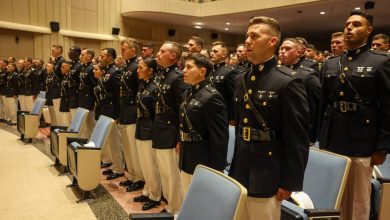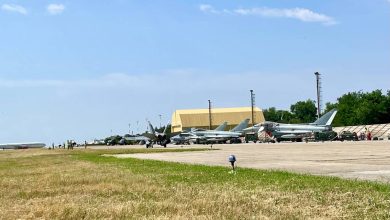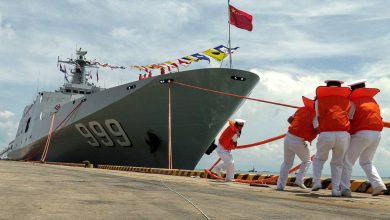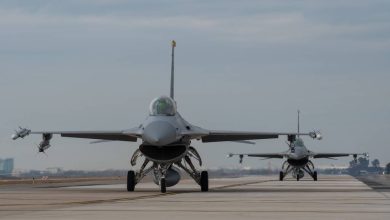Marines say no more ‘death by PowerPoint’ as Corps overhauls education
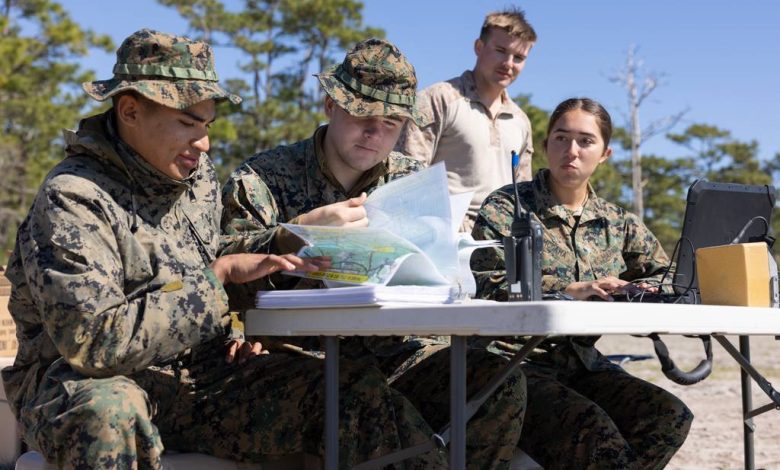
WASHINGTON, D.C. ― Marines and those who teach them will see more direct, problem-solving approaches to how they learn and far less “death by PowerPoint” as the Corps overhauls its education methods.
Decades of lecturers “foot stomping” material for Marines to learn, recall and regurgitate on a test before forgetting most of what they heard is being replaced by “outcomes-based” learning, a method that’s been in use in other fields but only recently brought into military training.
“Instead of teaching them what to think, we’re teaching them how to think,” said Col. Karl Arbogast, director of the policy and standards division at training and education command.
RELATED
Arbogast laid out some of the new methods that the command is using at the center for learning and faculty development while speaking at the Modern Day Marine Expo.
“No more death by PowerPoint,” Arbogast said. “No more ‘sage on the stage’ anymore, it’s the ‘guide on the side.’”
To do that, Lt. Col. Chris Devries, director of the learning and faculty center, is a multiyear process in which the Marines have developed two new military occupational specialties, 0951 and 0952.
The exceptional MOS is in addition to their primary MOS but allows the Marines to quickly identify who among their ranks is qualified to teach using the new methods.
Training for those jobs gives instructors, now called facilitators, an entry-level understanding of how to teach in an outcomes-based learning model.
Devries said the long-term goal is to create two more levels of instructor/facilitator that a Marine could return to in their career, a journeyman level and a master level. Those curricula are still under development.
The new method helps facilitators first learn the technology they’ll need to share material with and guide students. It also teaches them more formal assessment tools so they can gauge how well students are performing.
For the students, they can learn at their own pace. If they grasp the material the group is covering, they’re encouraged to advance in their study, rather than wait for the entire group to master the introductory material.
More responsibility is placed on the students. For example, in a land navigation class, a facilitator might share materials for students to review before class on their own and then immediately jump into working with maps, compasses and protractors on land navigation projects in the next class period, said John deForest, learning and development officer at the center.
That creates more time in the field for those Marines to practice the skills in a realistic setting.
For the infantry Marine course, the school split up the large classroom into squad-sized groups led by a sergeant or staff sergeant, allowing for more individual focus and participation among the students, Arbogast said.
“They have to now prepare activities for the learner to be directly involved in their own learning and then they have to steer and guide the learners correct outcome,” said Timothy Heck, director of the center’s West Coast detachment.
The students are creating products and portfolios of activities in their training instead of simply taking a written test, said Justina Kirkland, a facilitator at the West Coast detachment.
Students are also pushed to discuss problems among themselves and troubleshoot scenarios. The role of the facilitator then is to monitor the conversation and ask probing questions to redirect the group if they get off course, Heck said.
That involves more decision games, decision forcing cases and even wargaming, deForest said.
We “put the student in an active learning experience where they have to grapple with uncertainty, where they have to grapple with the technical skills and the knowledge they need,” deForest said.
That makes the learning more about application than recall, he said.
Todd South has written about crime, courts, government and the military for multiple publications since 2004 and was named a 2014 Pulitzer finalist for a co-written project on witness intimidation. Todd is a Marine veteran of the Iraq War.
Read the full article here


